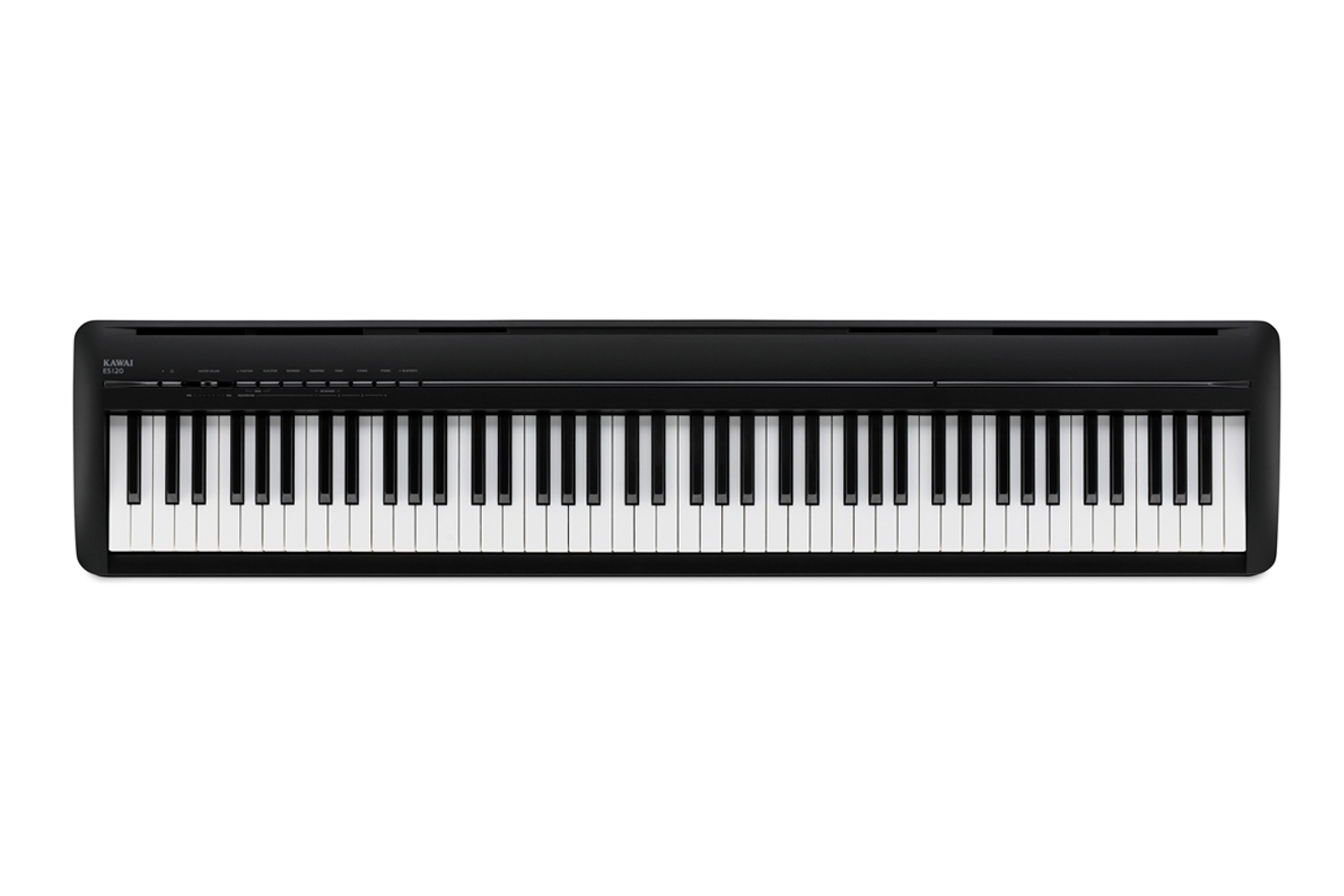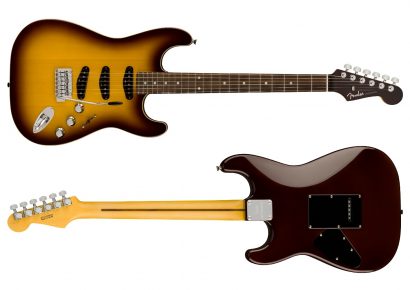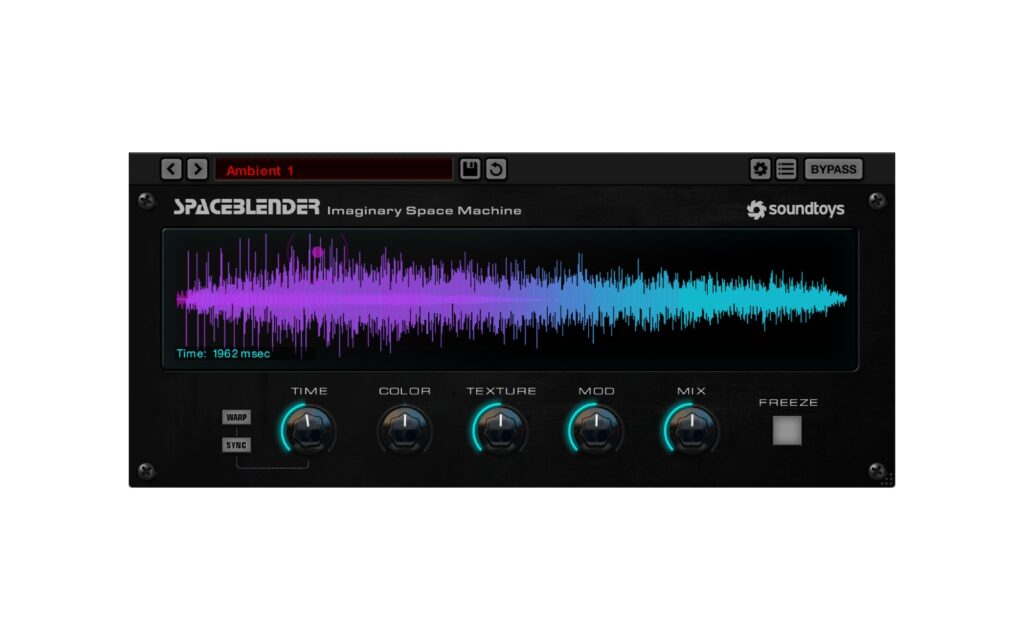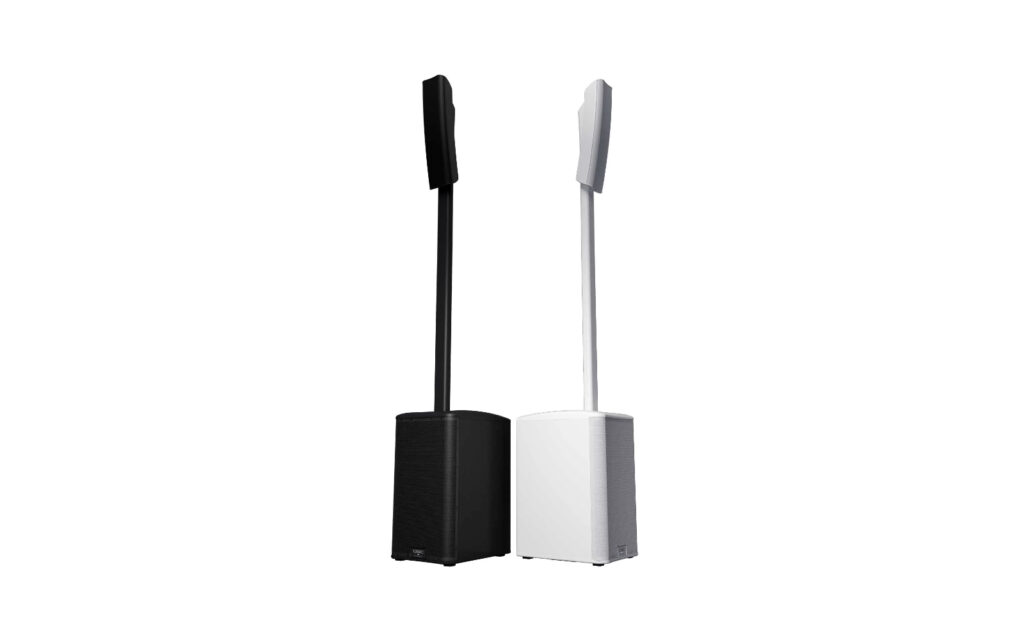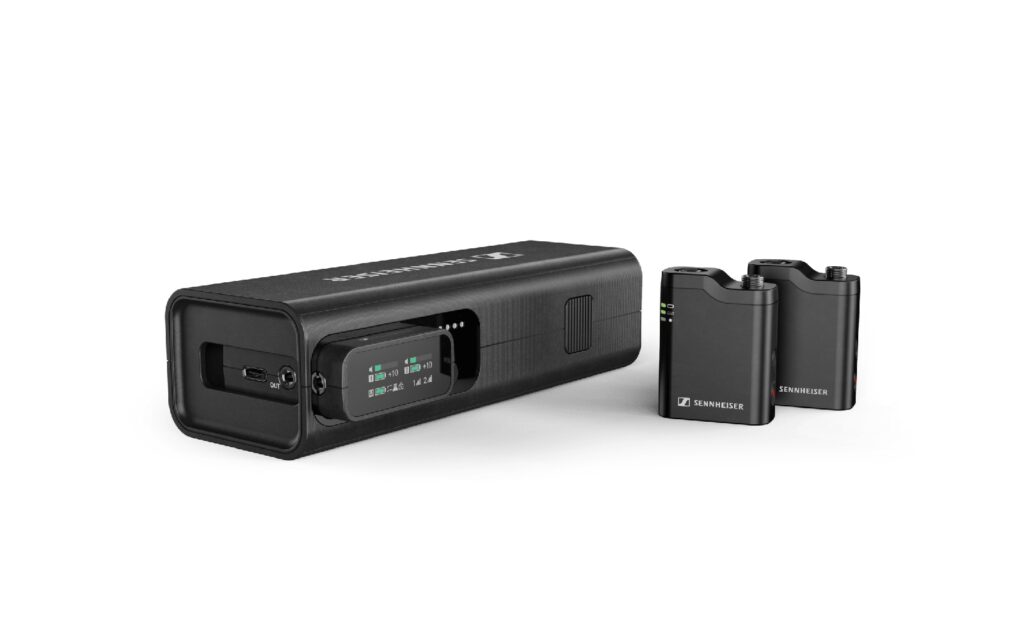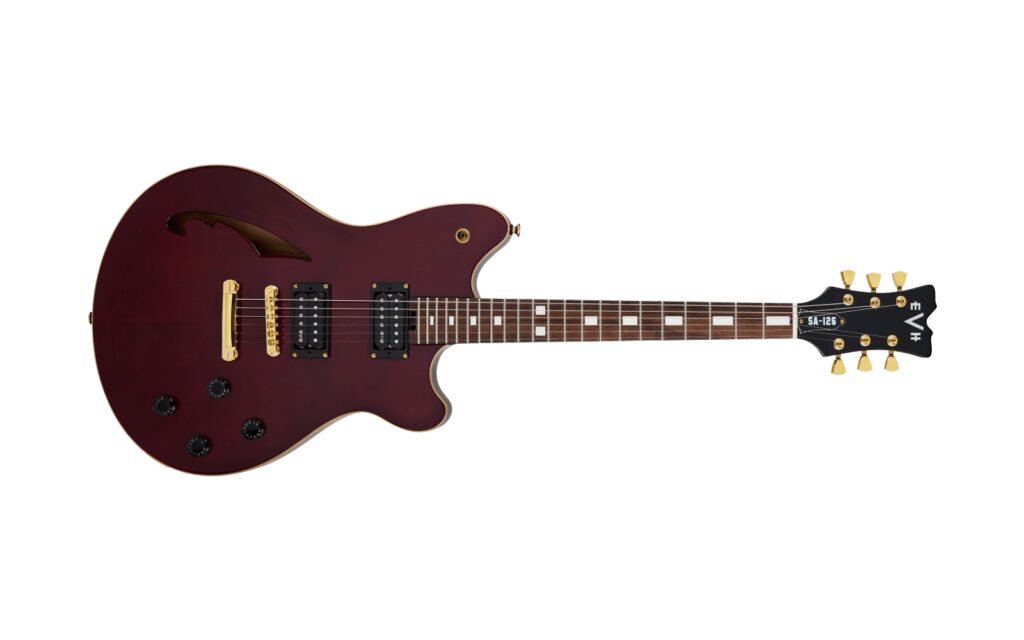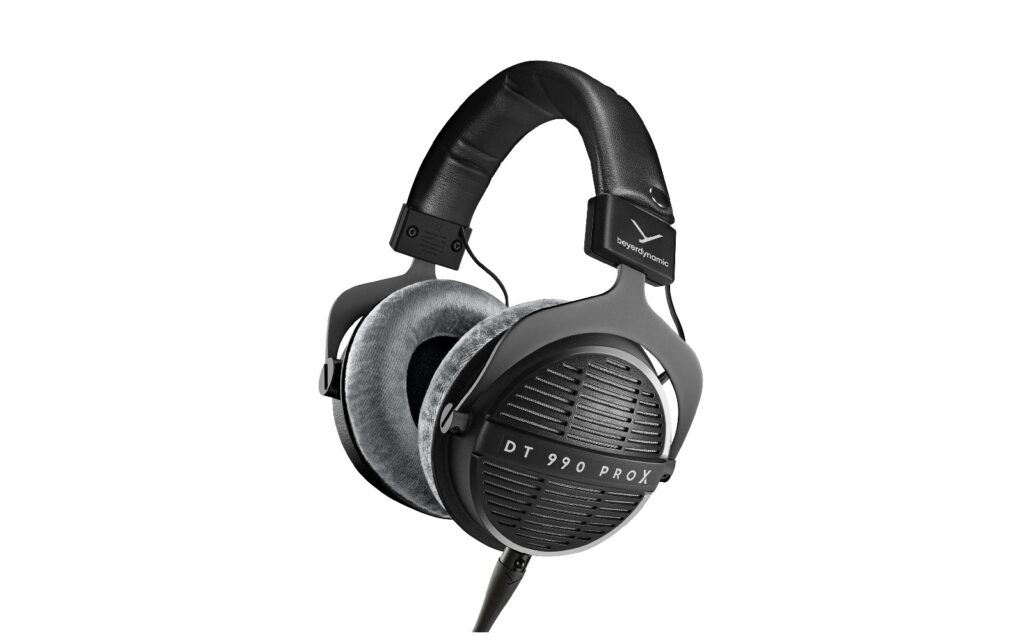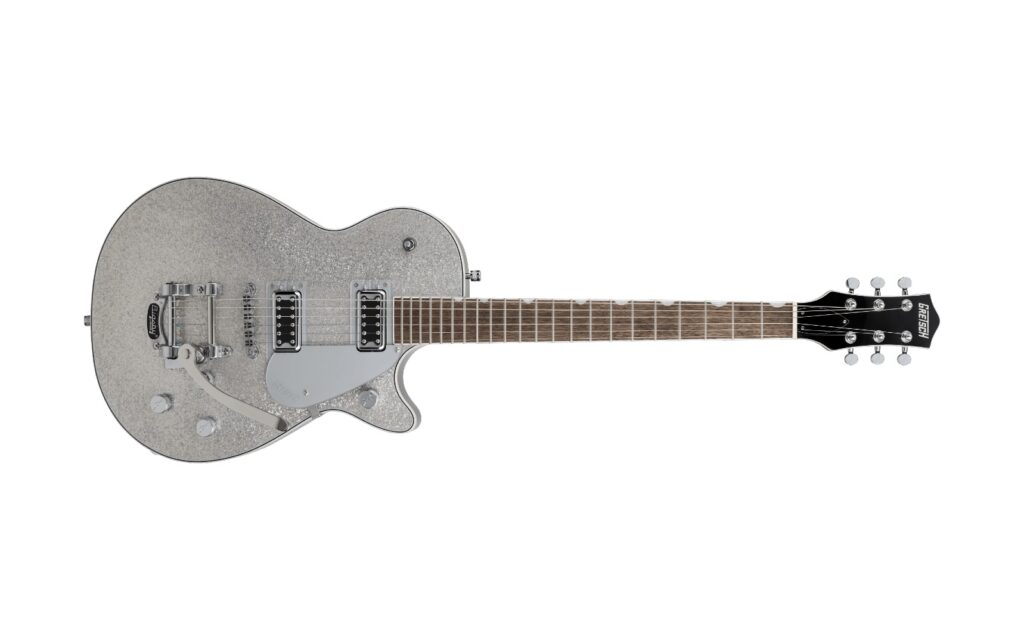Kawai Australia | RRP: $1,195 (+ Set $1,495)
Kawai calls this digital piano the “perfect choice for the home, stage, recital hall, or classroom”. And at this price point, it is hard to disagree. A portable stage piano with Graded Weighted Hammer Action, and a sleek refined design weighing in at 12.5kg for a full 88 keys. It packs a hefty punch at a quite affordable value.
The first thing I noticed about the Kawai ES120 is how different it looks to other stage pianos. The top surface is clean and uninterrupted bar one line of buttons hidden along a chrome trim, but this sleek disguise holds a slew of features hidden under the lid of this powerful little piano.
Read more gear reviews here.
The long list of features on board this piano is right at your fingertips, quite literally, by using a clever system that incorporates the use of the piano keys to select the variables. For instance, to change the instrument to the beautiful Shigeru Kawai SK-EX ‘Concert Grand Piano | Jazz’, simply press the ‘piano’ button and D1 on the keyboard.
The ES120 comes with 25 different instrument voices split into three different sections. Those being ‘Piano’, containing a selection of different piano tones sampled from multiple different pianos, ‘E. Piano’, a collection of classic electric piano voices, and ‘Other’, where the obligatory strings, choir, and bass guitar instruments can be found, to name a few. The list of features doesn’t end there, the ES120 has a metronome, six different reverb styles, onboard EQ, tuning temperaments, as well as the ability to split, dual, transpose, and even record all the instruments.
Another brilliant characteristic of the ES120 is the action. The Graded Hammer Action on the ES120 feels very comfortable and subtle, the weighted keys feel spectacular to play and at the price point that the ES120 is at, I haven’t played another digital piano with better feeling keys. The damper pedal didn’t share as nice a feel, but the port is compatible with your favourite third party foot-pedal so it isn’t the end of the world, and it is nice that it came with a pedal out of the box as well as a music rack. The action feels heavy enough to be authentic, but yet still springy and light enough to not feel like the action is getting in the way when using the piano as a MIDI controller which you can do via USB or MIDI ports on the back.
By far and away the instruments on the ES120 are excellently sampled and are reproduced very well by the high powered onboard stereo speakers. With the volume cranked, and some heavy-handed playing, my dBA meter peaked at 102dB which is certainly enough volume for practice, even with other musicians.
The ES120 comes with the expected outputs such as stereo line out, MIDI, and USB as well as Bluetooth connectivity to dedicated apps such as PianoRemote and PiaBookPlayer, as well as audio connectivity allowing you to play along with a song from your phone all through the wonderful onboard speakers. It is worth pointing out that the Bluetooth feature is not available in all markets.
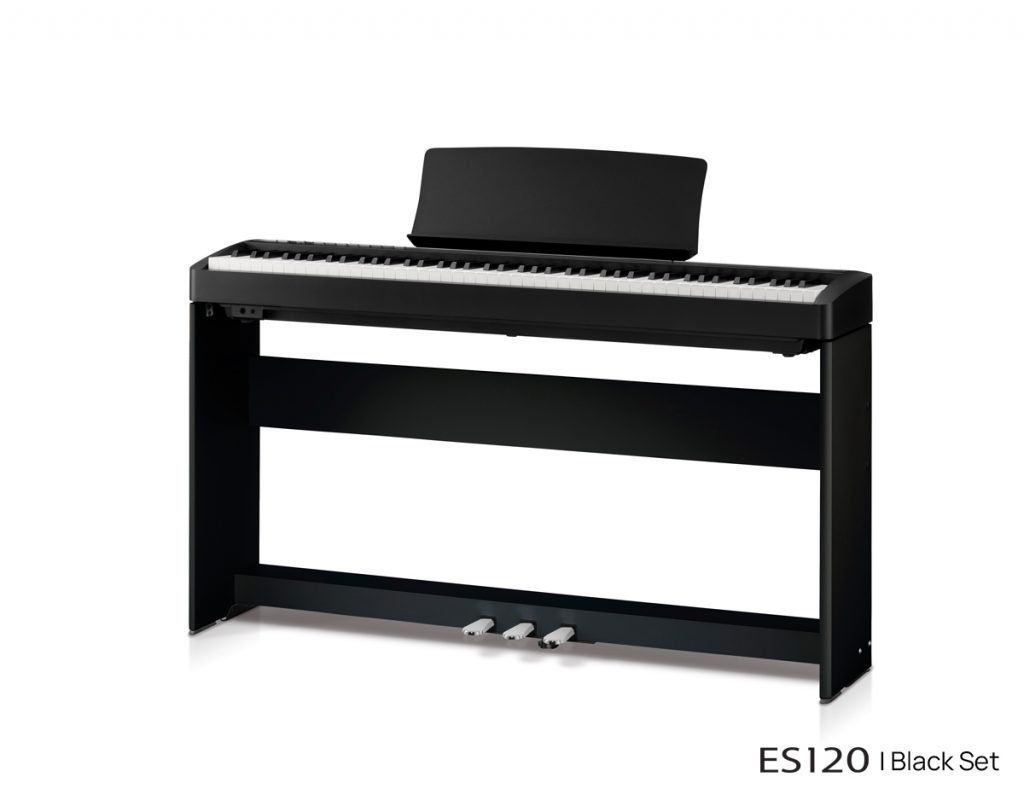
The ES120 can be enhanced in a few ways. The first is by purchasing the HML-2 design stand (pictured above with the F-351 Triple Pedal Board as well) creating a stylish centrepiece for the practice room. The second way to increase functionality is through the use of the dedicated apps, which facilitate the modification and control over the following factors: touch curve, voicing, damper resonance, damper noise, string resonance, key-off effect, fall-back noise, hammer delay, topboard simulation, decay time, release time, minimum touch, stretch tuning, temperament, temperament key, half-pedal adjust, and soft pedal depth.
While there is a lack of tap tempo and any visual indicators as to which instrument I was playing, these cons are minor and can be mitigated incredibly easily and are far overshadowed by how much fun the ES120 is to play. It responds just as well as some of the pricier stage pianos on the market. And given it weighs only 300 grams more than my pedal board, it is very portable. While it doesn’t come with one; it will fit in most aftermarket gig bags.
If I were to narrow down the purpose of the Kawai ES120 and touch on whether the quote by Kawai at the beginning of this piece rings true, I would say that the ES120 is well suited to most small to mid-sized events and is well and truly a perfect fit for the home, the classroom, or the recital hall. The ES120 is well worth its price tag, it comes off well when compared to other pricier options, and punches well above its weight when compared to other keyboards at its price bracket.
Overall, I would recommend the Kawai ES120 for anyone looking for a reasonably priced digital piano that serves well in a stage environment, in the practice room, or in home studios as a MIDI controller.
Head to Kawai for more information.
